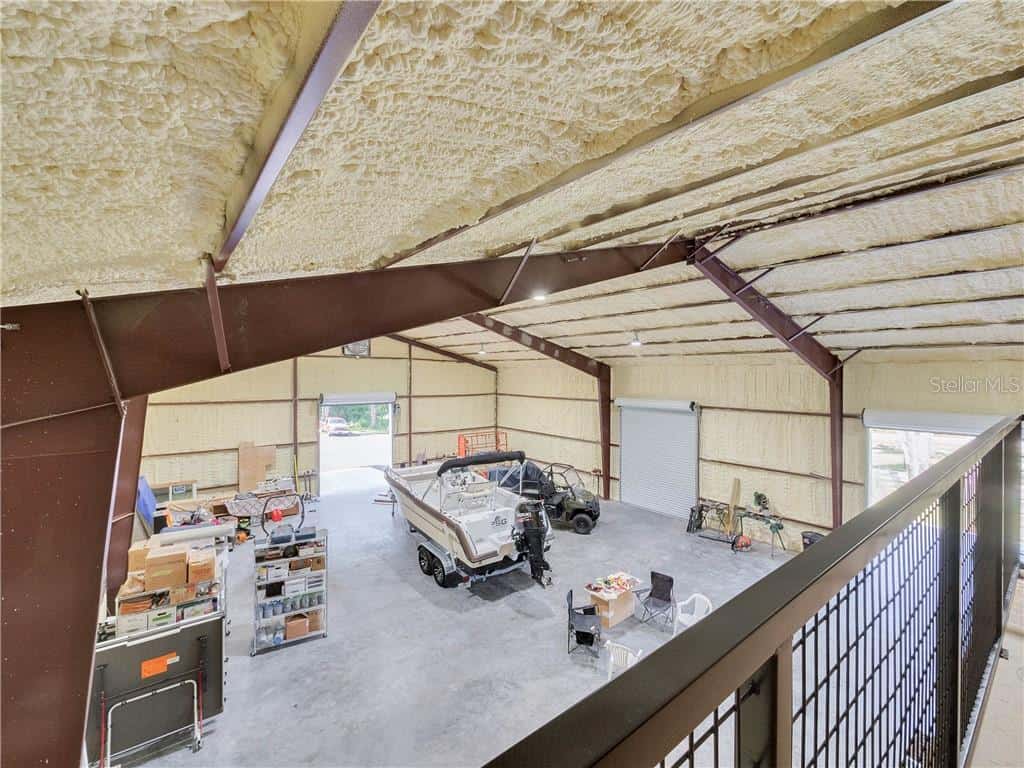In commercial steel construction, insulation is one of the most crucial decisions you’ll make – yet it’s often treated as an afterthought. While pre-engineered steel buildings are known for their durability, fast turnaround, and cost-effectiveness, their long-term performance hinges on proper insulation.
At MBMI Metal Buildings, we understand that insulation is not just a line item. It’s the difference between a building that performs and one that constantly demands more from your energy budget. In this guide, we’ll explore the major insulation types, R-values, commercial use cases, and how MBMI supports builders in creating energy-efficient, code-compliant steel buildings.
Why Insulation Matters in Commercial Steel Buildings
Insulation is more than a building material; it is a performance enhancer that directly impacts operating costs, comfort, and compliance. Steel, while strong and versatile, conducts heat rapidly. Without proper insulation, this can result in unwanted heat gain in summer and significant heat loss in winter.
Key Benefits:
- Lower energy costs over the building’s lifespan
- Better interior climate control for employees, equipment, or products
- Prevention of condensation and associated mold or corrosion risks
- Reduced stress on HVAC systems, potentially lowering equipment costs
- Compliance with codes like the International Energy Conservation Code (IECC), ASHRAE 90.1, and local amendments
Insulation transforms a steel shell into a high-performing structure. For commercial builders, it can mean the difference between meeting project budgets and dealing with long-term inefficiencies.
Key Types of Insulation for Steel Buildings
Choosing the right insulation for your commercial metal building depends on project location, use case, target R-values, and budget. MBMI provides expert guidance on integrating the right system from the start.
Fiberglass Blanket (Batt or Roll)
- The most widely used insulation for metal buildings
- Comes in long rolls that fit between purlins and girts
- Available with laminated facings for vapor control and aesthetics
- Works best in non-conditioned or lightly conditioned environments such as warehouses or storage
Rigid Board Insulation
- Typically made from polyisocyanurate (polyiso) or extruded polystyrene (XPS)
- Delivers high R-value per inch, making it ideal where space is limited
- Useful for walls, roofs, and under slab applications
- Often used in office build-outs or buildings requiring more efficient envelopes
Spray Foam Insulation
- Expands on contact to seal cracks, gaps, and seams
- Provides a high R-value and acts as both insulation and an air barrier
- Superior moisture resistance; excellent for humid or coastal environments
- Recommended for buildings requiring precise temperature and humidity control
Insulated Metal Panels (IMPs)
- Combine structure, insulation, and finish in one product
- Provide continuous insulation with virtually no thermal bridging
- Available in a range of finishes and profiles to suit architectural demands
- Common in cold storage, food processing, and premium retail environments
Understanding R-Values and Climate Zones
The R-value of an insulation material reflects its resistance to heat flow. The higher the R-value, the better the material insulates. Choosing the right R-value depends on your region and your building’s use.
Factors Affecting R-Value Requirements:
- Geographic location and climate zone
- Indoor temperature needs (occupied vs unoccupied)
- Local energy code requirements (IECC, ASHRAE)
For example:
- Southern U.S.: May only require R-13 to R-19 for walls
- Northern U.S.: May require R-30 or higher for roofs and walls
- Specialized Uses: Cold storage or data centers may demand much higher insulation levels and tighter building envelopes
MBMI’s engineering team works with clients to calculate and deliver insulation systems tailored to both location and usage.
Common Commercial Use Cases and Their Insulation Priorities
Every commercial building type brings unique insulation demands. MBMI guides clients in matching their structure to the right thermal protection.
- Warehouses: Focus on affordable thermal barriers and condensation control, often with fiberglass batts
- Office Spaces and Retail: Require higher R-values and attention to indoor air quality and noise control
- Mini-Storage Facilities: May require variable insulation based on whether units are climate-controlled or ambient
- Workshops and Service Centers: Often need a balance of insulation and ventilation, especially in hot or cold climates
- Food Processing or Cold Storage: Require continuous insulation systems like IMPs or closed-cell spray foam to prevent thermal bridging
- Barndominiums and Live/Work Units: Require residential-grade insulation standards with proper vapor control and thermal continuity
MBMI’s Approach to Insulated Commercial Steel Buildings
MBMI doesn’t take a one-size-fits-all approach. Our insulation recommendations are based on each client’s business goals, building function, and regional requirements.
Our Process Includes:
- A consultation on energy code requirements and climate needs
- Coordination with MBMI’s in-house engineering to integrate insulation into structural plans
- Options for faced fiberglass, high-R rigid boards, or continuous insulation systems
- Guidance on vapor barriers, thermal breaks, and trim integration for moisture and air control
In addition to insulation, MBMI includes premium features that enhance the envelope:
- Fully insulated walk doors for improved entry-point performance
- Base and eave trim seals to reduce air and water infiltration
- High-gloss wall and roof panels with 40-year warranties that reflect solar heat and enhance thermal performance
Final Thought
Insulation is not a secondary detail – it is fundamental to the performance of any commercial steel building. Whether you’re building a warehouse, service facility, retail space, or live/work environment, proper insulation determines how efficiently and comfortably your building operates over time.
At MBMI, we deliver more than just steel buildings. We deliver solutions engineered for longevity, comfort, and compliance – insulation included.
Ready to get started? Contact us today to discuss your insulation needs and let our experts help you build a structure that performs as well as it lasts.
